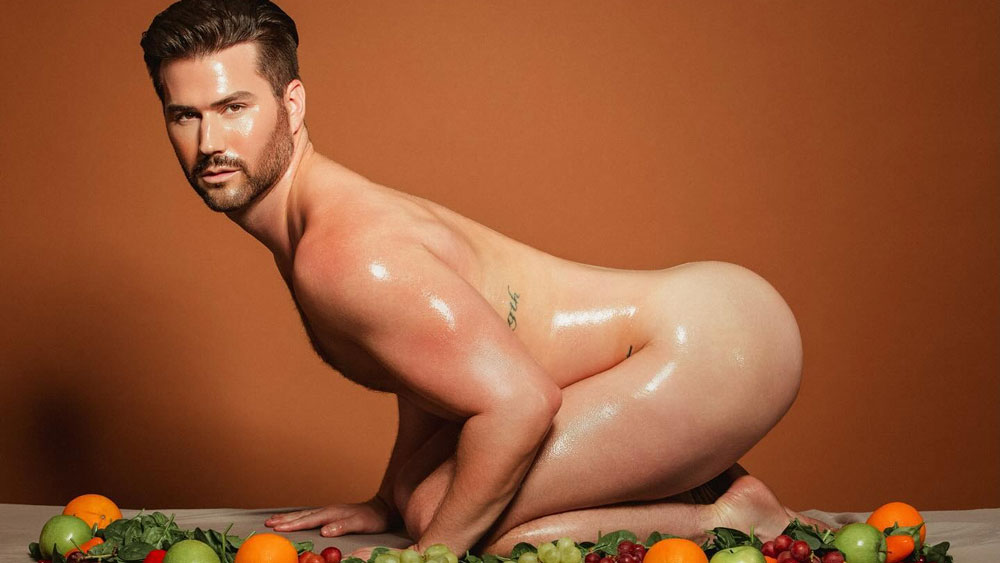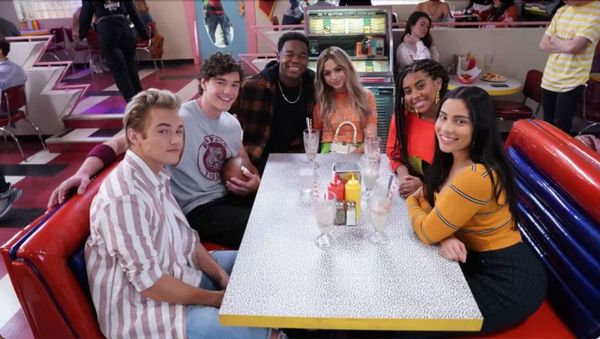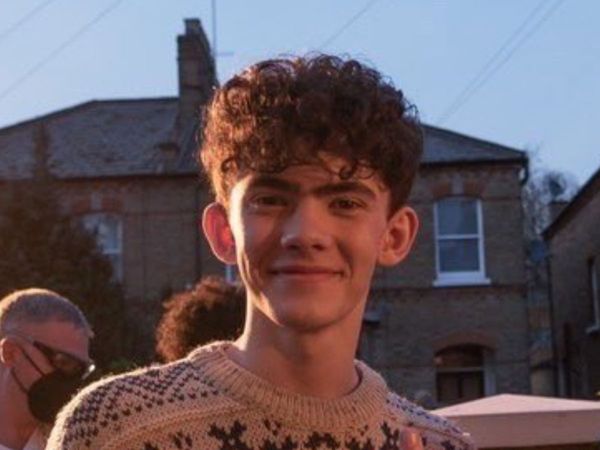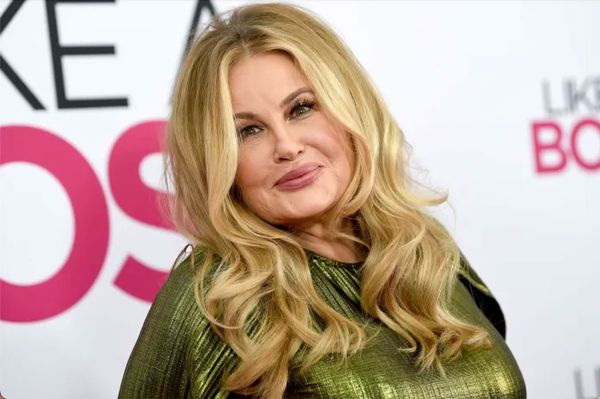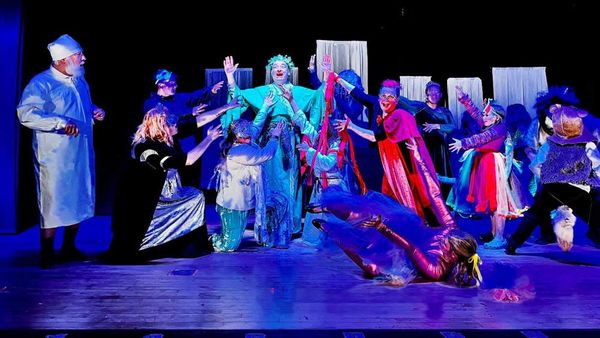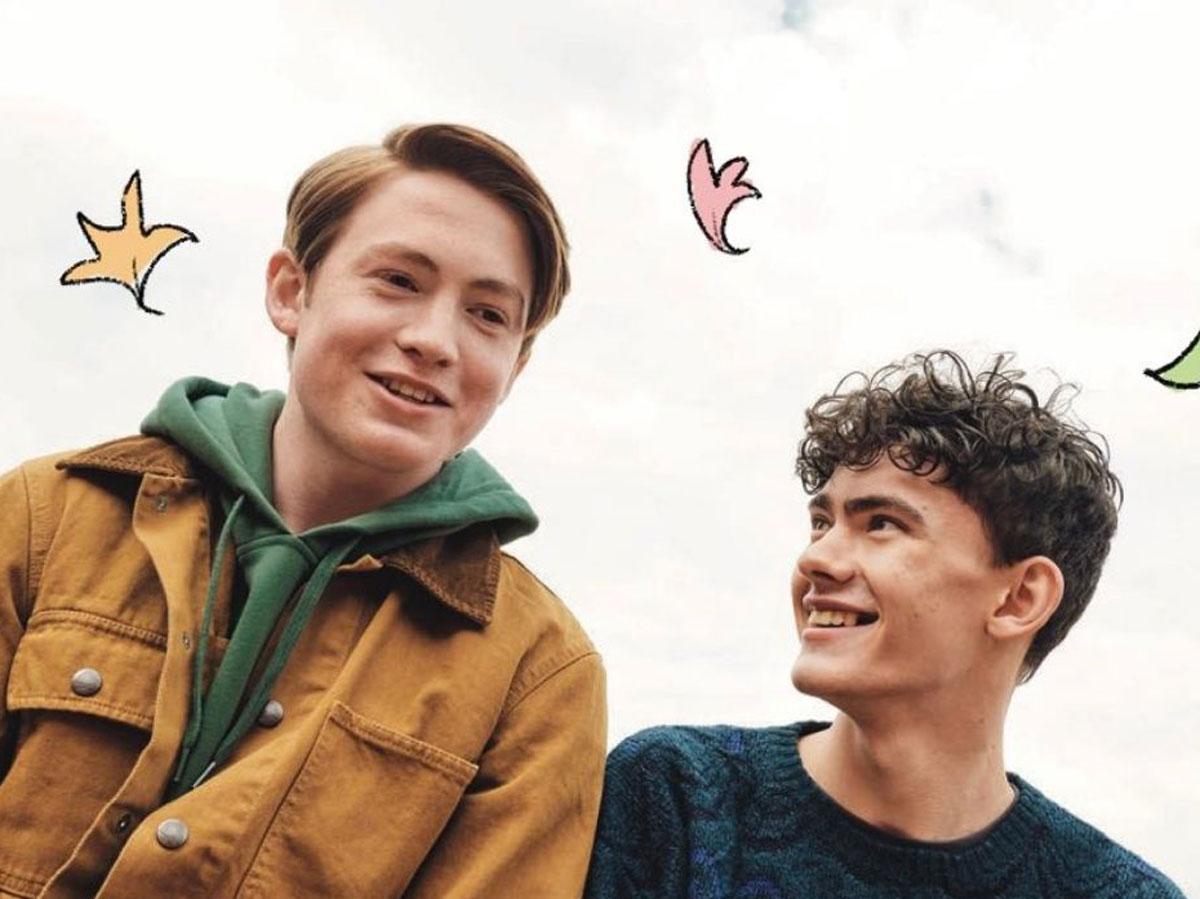
April 19, 2022
Review: 'Heartstopper' a Sweet Gay Romance
Kilian Melloy READ TIME: 4 MIN.
The eight-episode Netflix adaptation of Alice Oseman's popular graphic novel "Heartstopper," about first love between two teenage boys, will warm, if not stop, your heart.
Charlie Spring (Joe Locke) is an out and proud 10 grader with a history of bullying. Until now, his only friends have been "fellow outcasts" Tao (William Gao), a straight cinephile; Isaac (Tobie Donovan), a quiet, unassuming bookworm; Elle (Yasmin Finney), a transgender girl; and the schools art teacher, Mr. Ajayi (Fisayo Akinade), who is more a mentor, protector, and ally than a friend, but he's the one who has stopped the bullies and ensured that as the spring term begins Charlie might have a little peace.
As school resumes after the Christmas holidays Charlie and his secret boyfriend, Ben (Sebastian Croft) are headed for a breakup, since Ben is too scared to come out and be with Charlie in public. Indeed, he's too scared to acknowledge Charlie at all, and his brusque rejection in the school's halls is hurtful. At the same time, Charlie finds himself paired with eleventh grader and school star athlete Nick Nelson (Kit Connor), whose charm and friendliness makes him much admired. But there's something extra about the way Nick responds to Charlie's morning greeting – "Hi," the boys say to each other, with a sparkle –�that pings Charlie's radar, despite all his friends warning him not to fall for a straight boy.
As Charlie and Nick grow closer, Charlie finds himself joining the school's rugby team, while Nick contemplates his undeniable fascination with, and attraction to, Charlie. The show is graced with animations of blowing leaves and flowers that swirl around the characters as they experience surges of affection, hearts that soar and break, and bolts of lightning that illustrate just how charged even the slightest touch between the two can be. If this isn't love, then what is it?
Nick struggles to understand how he can be attracted to both girls and boys – or, at least, one boy – while Charlie's friends wonder if they will need to stage some sort of intervention. As time goes by and the nascent romance grows, Nick's old friends –�including Harry (Cormac Hyde-Corrin), a rich, entitled, and homophobic bully – start to seem more and more like a poor fit, while Charlie's friends start to feel left out of his life, particularly Tao, who is already feeling abandoned by Elle, who has transferred to an all-girls school to get away from the transphobic bullying she's endured. Will the super-charged, hormonal emotions of adolescence ruin longstanding friendships? Will his romance with Nick turn into a repeat of what Charlie has suffered with Ben?
The answers are delivered with less drama and more potent emotion than you might expect. The show's tropes are all familiar, but what feels fresh is an edge of naturalism, plus the courage of the source material's graphic novel conventions; those swirling flowers and quivering lightning bolts could have been too saccharine by far, and yet they serve the show's emotional beats well. (Perhaps it's partly due to the way audiences have become accustomed to text messages popping up on screen, like word balloons on comics pages; there's plenty of that in this series as well, along with cascades of emojis.)
There's nothing too outrageous here: The moments of violence are few and comparatively mild, as when Ben, demanding a kiss from Charlie, won't take no for an answer (not to worry, Ben gets his comeuppance), and one dustup when Nick rises to Charlie's defense after Harry has gone too far. There's no suicidal ideation, no drug use, no graphic anything (this isn't "Euphoria," by nay means), and no threat of anyone being shipped off to suffer through so-called "conversion therapy." Even the inevitable subplot about a straight girl, Imogen (Rhea Norwood), taking a fancy to Nick and publicly pursuing him, stays within the show's carefully-drawn boundaries. There are awkward moments, but nothing that feels unduly exaggerated.
The misery dial is set to low, in other words, but there's still plenty of fear, sorrow, yearning, and heartache, put together in what feel like the proper ratios for the experience of adolescent turmoil.
There's also plenty of humor, much of it between Charlie and Nick, but also among the group of friends –�including the new friends Elle has made, a lesbian couple named Tara (Corina Brown) and Darcy (Kizzy Edgell). It's between these two that the most cliched dramas play out –�as soon as they go public, Tara starts to fret about the trolls on social media who say things like, "You're too pretty to be a lesbian," and the mean girls in band who snark about non-heterosexuality being contagious. (Darcy, meantime, is unperturbed: She's as confident and self-possessed as Peppermint Patty from "Peanuts," and Edgell's performance makes you wish for a spinoff centered around Tara and Darcy.) These dramas, too, are handled with a light and realistic touch.
Will the show make your heart stop? Skip, maybe, especially in the rare moments when parents play a role (and they are beautifully supportive in this show), or when you remember your own first shy moments of first love. It's much more the case that "Heartstopper" is heart warming –�gentle, sweet, and uplifting.
"Heartstopper" premieres on Netflix April 22.
Kilian Melloy serves as EDGE Media Network's Associate Arts Editor and Staff Contributor. His professional memberships include the National Lesbian & Gay Journalists Association, the Boston Online Film Critics Association, The Gay and Lesbian Entertainment Critics Association, and the Boston Theater Critics Association's Elliot Norton Awards Committee.
